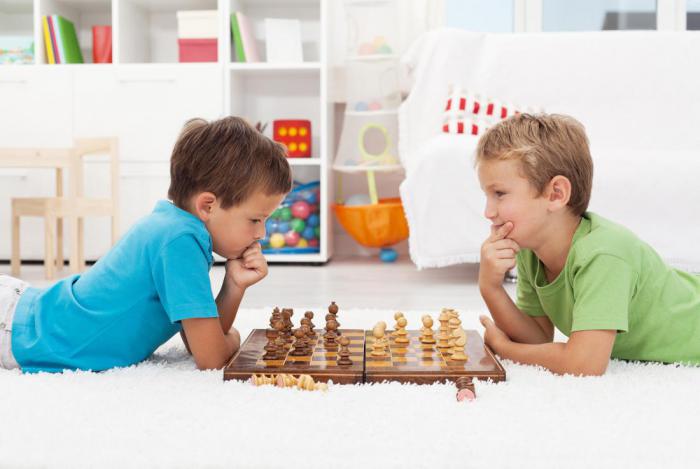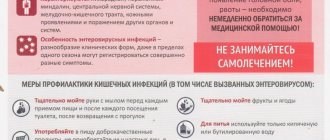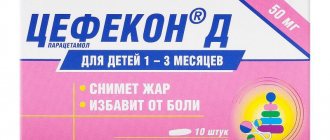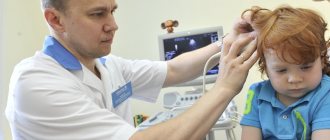Why vitamins are essential for brain development
Mental and cognitive processes belong to the highest level of mental activity. These are not easy survival reflexes: hunger - food. They have complex neuroregulation and take place in the cerebral cortex. In order for signals to be transmitted in neurons at a sufficient speed, accelerators, transmitters, media and information archivers are needed. Their role is played by certain vitamins.
Without a sufficient amount of vitamins B, C and D, the child’s mental activity will develop slowly. Brain cells will not receive sufficient nutrition to fully absorb and process information. The development of intelligence will be slowed down. Even good heredity will not help.
Complex thinking operations: analysis, synthesis, generalizations will remain at a rudimentary level. For their full formation, it is necessary to keep a certain amount of information in the locus of attention. A lack of nutrients will make the brain cells weak and they will not be able to cope with this task.
Cultivate an early passion for books

Choose books with big, bright pictures and share your child's joy with gestures and sounds, for example animal sounds go well with a picture of a farm. Modulate the tone of your voice, simplify or stop at certain points, stimulate the child’s desire to discuss the books he has read. Remember that in infancy it is much more important to develop a child's receptive language (understanding what is said to him) rather than expressive language (the speech itself).
Eating in a cafe can lead to excess weight: let's take an example from thinner friends
The transformation was beneficial: the complex makeup of Cheetah in “Alien Woman”
Fiona - Taurus: 12 favorite cartoon characters and their zodiac signs
How to understand that a child does not have enough vitamins for the brain?
- Outwardly, their deficiency in the child is hardly noticeable. A preschool-age child is cheerful, sociable, easy to interact with and active. But, he may experience poor appetite, fatigue and an increased tendency to whims.
- The child does not like mental activities. Gets tired quickly from cognitive activity. Interest in the environment is reduced. Such a baby cannot be called a “why”.
- Difficulties in learning appear from the first day of school. Teachers complain to parents about their son or daughter’s poor efforts. They talk about restlessness and inattention. They require more and more additional activities.
- But additional classes will not help here. The brain systematically did not receive the necessary vitamins. The only way out of the situation is a balanced diet and vitamin complexes.
The emotional side of the child’s personality also suffers. The positive role of vitamins in the development of a child’s brain is also in creating the right emotional background. They ensure the production of serotonin and the regulation of excitation and inhibition processes. Lack of serotonin affects the formation of character. The child grows up capricious, nervous, and excitable.
Start before your baby is born

Monitor your health during pregnancy and be aware that some drugs can be harmful to the baby's brain while in the womb. Many children who have been exposed to drugs taken by pregnant women have problems learning and exhibit unreasonably aggressive behavior. Research has also shown that smoking during pregnancy leads to significantly lower reading fluency scores, even among fourth graders.
Bring your own snacks and drinks: What you should know about going to the beach this summer
Luxurious no-bake chocolate cake. The base was made from popcorn
Two in one: the neighbors decided not to buy a pool and filled the trampoline with water
The main helpers of the brain are B vitamins
Vitamin group B activates memory and attention. It is responsible for the speed of thought processes and their quality. Provides stability of attention and gives enough strength for intellectual work.
It affects chemical processes. With the help of this vitamin group, the synthesis of amino acids responsible for transmitting signals between brain cells occurs. Their deficiency leads to rapid cell aging, increased fatigue and chronic fatigue.

B1 (thiamine)
B1 is enough - good memory, observation, attention. Deficiency B1 – depression, poor memorization of material, rapid fatigue from mental and physical stress. Products with B1: nuts, pork, pork liver, brewer's yeast, green buckwheat, potatoes, cereals, unrefined cereals, legumes, rose hips.
B2 (riboflamin)
Enough B2 - thinks quickly, reacts, understands, withstands strong mental stress. B2 deficiency – drowsiness, lethargy, weakness. Products with B2: nuts (almonds, peanuts), buckwheat, oatmeal, raw green vegetables, herbs, apricots, legumes (lentils, beans, peas).
B3 (nicotinic acid)
Enough B3 – enough energy for brain activity. Disadvantage B3 – difficulty concentrating, poor memory, fatigue. Products with B3: liver, kidneys, fatty fish, legumes, nuts, dairy products.
B5 (pantothenic acid)
Enough B5 – good long-term memory. Deficiency B5 – rapid forgetting of learned material, poor sleep, low mood. Products with B5: beef, offal (liver, kidneys, heart), nuts, legumes, milk, sea fish.
B6 (pyrodoxine)
Enough B6 – high intelligence, quick thinking. B6 is not enough - slow-witted, difficult to analyze the material and grasp the essence. Irritability, slowness, poor sleep. Products with B6: chicken meat, fatty sea fish, liver, legumes, nuts, millet, pomegranate, sea buckthorn, horseradish, chasnok.
B9 (folic acid)
B9 is enough – speed of thinking, high-quality memorization. Deficiency B9 – apathy, difficulty concentrating, fatigue. Products with B9: greens, medicinal herbs (mint, lemon balm, nettle, yarrow), plant tops, raspberry and currant leaves, meat, liver, fresh milk and fermented milk products.
B12 (cyanocobalamin)
B12 is enough - during sleep, learned information is transferred from short-term memory to long-term memory. Not enough B12 – information is “erased”, shallow sleep, fatigue.
Synthetic nootropics to improve a child’s memory
Most synthetic drugs manifest themselves more actively and quickly, which correlates with pronounced side effects and an increased risk of overdose. Among the nootropics prescribed to children, the following are most often named.
" Pantogam " (hopantenic acid) with calcium hopantenate as the active ingredient. It is prescribed to increase the brain's resistance to oxygen starvation, as well as to reduce the effects of toxins on brain cells. Available in three forms: capsules, tablets, syrup, but the tablet form is contraindicated for children under 3 years of age.
" Aminalon ". The active ingredient neurotransmitter is gamma-aminobutyric acid. Used to activate metabolism, remove toxins and improve glucose processing. The drug is indicated for disorders of the central nervous system and is used to activate intellectual activity. Available in tablet form.
" Nootropil ". The active substance is piracetam. The drug is contraindicated for children under 3 years of age. When taken by school-age children, it has a positive effect on the ability to concentrate and memory functions. Prescribed for dyslexia, a disorder that is accompanied by a selective impairment of the ability to read and write without loss of general learning ability. Side effects may include increased agitation and irritability.
" Phenotropil ". A fairly effective substance, the effectiveness of which is noticeable even after a single dose, which, however, is recommended to be taken in the first half of the day to avoid insomnia. The drug works by increasing norepinephrine and serotonin in the blood and increasing oxygen levels in the brain.
" Fezam ". Not for pregnant women and children under 5 years of age. After this age, it is taken in recommended doses to increase mental performance and normalize sleep. At the same time, it eliminates irritability, mood swings and hysteria. It has proven to be a good way to improve concentration and get rid of psycho-emotional disorders in children of primary school age and adolescents.
How to improve brain activity in a schoolchild
Many parents do not know how to solve a well-known problem - the child’s reluctance to study. Children stop attending classes, sleep in class, or simply deal with their own problems. One and the most important primary reason for this is the incorrect presentation of the school curriculum by teachers. Teachers should present any, even the most complex, programs in an interesting, sometimes playful way.
Theatrical activities in senior groups of preschool educational institutions
Note! You can increase perseverance, the process of perceiving information and memory concentration with the help of various exercises, nutrition, vitamins and aromatherapy.
Exercises to develop brain activity:
- Information that you need to know very clearly is best repeated before going to bed.
- In order for both hemispheres of the brain to work simultaneously, you need to take a pencil in both hands and at the same time try to draw the same objects.
- Constant study of poems and songs has a beneficial effect on development and concentration.
- Old things in a new way. Any non-standard actions force the brain to form new neural connections, and this in turn contributes to its activity.

Exercises for development
- One minute the child needs to stroke his head with one hand, beat out a fraction with the other hand, and vice versa.
- When learning words in sequential order, you need to ask your child to come up with a story with these words.
- Stickers with new words - these can be foreign languages - hang around the house so that the child stumbles upon them.
- Vivid associations and emotionally charged events are remembered faster.
There are many different games aimed at actively developing memory, puzzles and logic with exciting tasks. Good rest, taking medications for children’s memory and mental activity (nootropic, vitamin complexes), proper nutrition are important conditions for development, improvement of memory and brain function.
Additional Information! For adult children, these exercises will help during a session or other training (weekly training, English classes, etc.).
Vitamin complexes to support memory and attention for children
Among the popular vitamin complexes for memory for children are the following:
- Supradin for children - average price per pack is 400 rubles*. Vitamins come in the form of gummies, which is a big plus for children.
- Complivit - vitamins have interesting colorful packaging and shape. The average price per package is 300 rubles.
- Multitabs is a large complex for normalizing the emotional state. The average price per package is 700 rubles.











